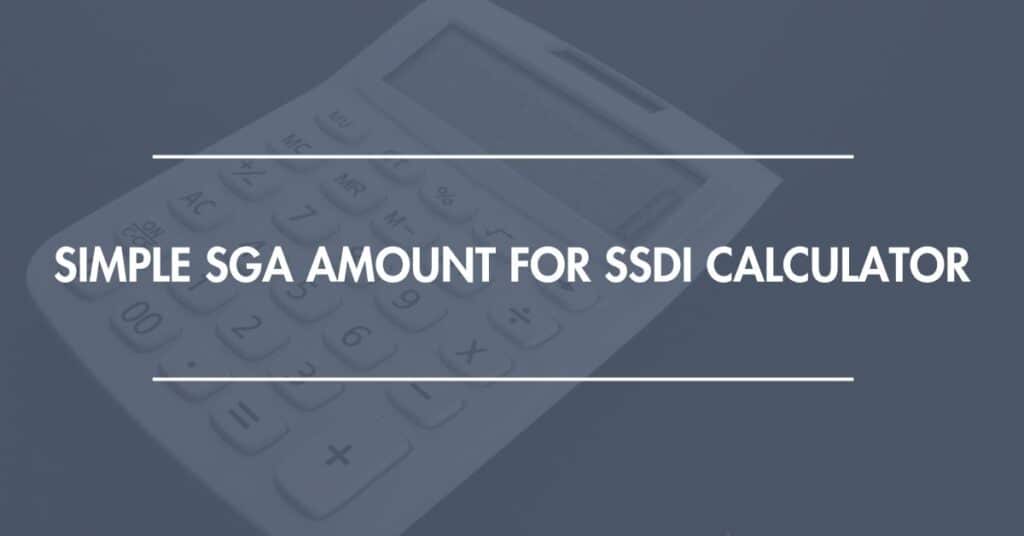
Substantial gainful activity (or SGA) is a term used by the Social Security Administration (SSA) to describe the level of work activity and earnings used to qualify someone for disability benefits. Each year the SSA updates the maximum SGA amounts to account for inflation.
Use this calculator to see if your weekly wages are over the current SGA amount for SSDI. Social Security requires an individual to show that they can’t engage in substantial gainful activity to obtain disability benefits. This SGA amount for SSDI is Social Security’s way of defining work that is significant enough to show that someone can work, and not eligible for disability benefits.
On the other hand, SGA limits mean that many people applying for and receiving disability benefits may be able to perform some limited part-time work and still qualify for benefits. The amount of earnings is pretty low, less than $1,550 a month before taxes or other deductions in 2024. Still, that bit of extra income can be a life-changer for someone unable to perform substantial work.
Calculator: SGA Amount for SSDI
This calculator lets you enter an hourly rate and a number of hours per week and find out if it is above or below SGA. The past few years are included in case you need to check your earnings for a prior year.
SGA Limit Calculator
Select the year and enter the number of hours per week and hourly rate to calculate if earnings are within the SGA limit.
SGA issues
In order to win a Social Security disability claim you need to prove 4* things:
- You are not working at levels above substantial gainful activity,
- That you have an impairment that causes at least some work-related limitations,
- That you can’t perform any of the work you’ve done in the last 5 years,
- That you can’t make an adjustment to other work that exists in the national economy.
Social Security reviews these steps in order. In each of these steps, if the answer isn’t resolved in favor of the applicant, the review stops and Social Security denies the claim. Whether or not you are working at SGA levels is the very first step.
Sometimes there can be a legitimate dispute about whether someone is working at SGA levels or not. There are many exceptions and questions that need to be addressed. Even if someone is technically earning more, there might be a reason to average those earnings over a period. For example – if someone is paid every other week, there will be some months with more pay periods than others. Likewise, someone might earn a commission for work performed in an earlier period. If someone applying for benefits is self-employed, Social Security might find that they are working at “SGA” levels even if they are actually earning much less, if the amount they are earning is comparable to other people with similar jobs.
These issues can sometimes be more complex than the underlying health issues causing the disability! They also, unfortunately, can be the hardest to find help. Our firm has handled many SGA cases. For example, in one case we helped a pastor who was paid tens of thousands of dollars a year even after he’d ceased contributing to his church. We were able to successfully argue that the value of his work was not reflected in his pay, and instead it was the love of his parishioners that kept his pay at its pre-disability level. Ultimately, Social Security agreed and counted the income as charity rather than work.
All of that is to say: Don’t assume you won’t qualify for disability just because you’re working at minimal levels. If you’re below SGA, apply for benefits. If you’re not sure, or would like to go over your situation, give us a call. We’ll review your facts and often will offer guidance, even if there isn’t a case we can help with.